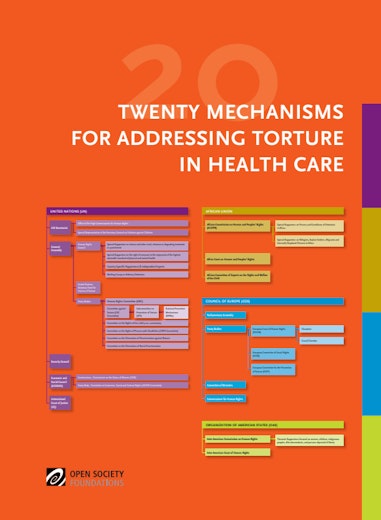A Signature Is Not Enough
By Tamar Ezer
Violence happens in health care settings.
It does not just take place during war or conflict, on the street, or even in our homes among partners. Health care facilities that are supposed to be places of treatment, care, and support are all too often sites for violence. This is particularly true for those who are marginalized in society. The Commission on the Status of Women, the UN’s global policy-making body on equality and advancement of women, significantly recognizes this in its just released “agreed conclusions,” providing guidance on the elimination of all forms of violence against women and girls.
Earlier this month, in his landmark report on torture in health settings the Special Rapporteur on Torture and Cruel, Inhuman and Degrading Treatment recognized that torture takes place in health settings. However, many of these abuses are invisible and unacknowledged and improperly justified on the basis of “medical necessity” or administrative convenience. It is time to shine a light on these hidden violations.
A particularly egregious form of violence against women in health settings is forced sterilization. As the Special Rapporteur on Violence against Women explained, “Forced sterilization is a method of medical control of a women’s fertility without the consent of a woman. Essentially involving the battery of a woman—violating her physical integrity and security, forced sterilization constitutes violence against women.”
Both the Special Rapporteur on Torture in his recent report, as well as the International Federation of Gynecology and Obstetrics recognize the “long history” of forced sterilization of marginalized women, as well as discrimination against women who are deemed undesirable and “unfit to bear children.” The Czech Republic, Slovakia, and Hungary are now confronting their sterilization of Roma women. In Peru, indigenous women have been targeted. Forced sterilization of women living with HIV has been documented in Namibia South Africa, Kenya, Chile, and the Dominican Republic, with reports emerging from many other countries. Many countries allow for forced sterilization of women and girls with disabilities without their consent, exempting them from protections that apply to other women. Many countries force transgender persons to undergo unwanted sterilization in order to have their preferred gender recognized.
It is time to take action to overcome this abuse. It is not enough for laws to state that sterilization should be consensual. They need to provide the following clarifications and guidance:
- Only the woman herself can validly consent to her sterilization. There is no place for spousal consent or consent by guardians or family members.
- Forced sterilization for prevention of pregnancy is never an emergency procedure that justifies disregard for with consent requirements.
- Consent cannot be requested a women is in labor or in pain.
- Sterilization cannot be a condition for other treatment or services, such as access to antiretroviral treatment, termination of pregnancy, or baby formula—yes this has been documented!
- Basic information on the procedure, its permanence, alternatives, and risks should be provided in a language women understand. We’ve seen consent forms that are in Latin and forms that require women to agree to a caesarian section, sterilization, polio vaccination, or other procedures to themselves or babies. With such a form, it’s impossible to know to what you’re consenting!
A signature on a form is not enough. Consent must be free and fully informed.
Good laws and policies must then be translated into guidelines and trainings for health providers. Health facilities must be monitored for compliance, and it is important that women have an accessible complaint mechanism in hospitals. Finally, states have a duty to investigate and redress violations.
Only then can health care settings truly serve as places of care for women.
Until June 2016, Tamar Ezer was deputy director of the Law and Health Initiative of the Open Society Public Health Program.
